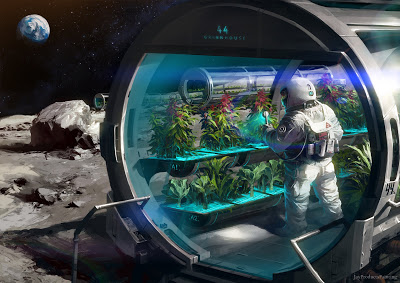Welcome back to another blog hop, with #OpenBook. Here’s this week’s prompt.
Don’t forget to click the link to see what everyone else has to say on this week’s subject. It’s at the end of my post.
Which sci-fi invention would you like to see made real?
As an avid world-builder, I take what we have today, modify it and set it running in my fictional future or alternative worlds.
Most of the time, I’m just adapting present technology to its new surroundings. Which is actually a lot of fun, almost as much as the story itself.
There’s a lot that you can use in this way, ideas and things that will be immeasurably more suited to helping humanity survive in the future, on another planet. It might surprise you to know that 90% of what we need exists. It just needs a few tweaks.
But, just occasionally, there is that idea, the one that makes you stop and wonder why it hasn’t been done.
I don’t mean the faster-than-light drive, although that would be neat. Nor the quantum computer or anything using quantum mechanics. How about Light-Sabres, or transporters?
One of the crazier ones has to be something that’s often overlooked in Sci-fi. It concerns the way we are going to eat once we’re in space.
I’m talking about the food replicator, as seen in Star Trek.
It’s a neat idea and solves the problem of keeping a crew fed when you’re light-years from a supermarket but, when it comes to food, I’d actually like to see one of my own ideas brought to life.
Here’s a clue, in “The Martian,” by Andy Weir, Mark Watney grows potatoes on Mars, as a way of keeping himself alive.
When I read that, I realised that the issue of where the food is coming from is rarely discussed. It’s kind of glossed over or ignored. Or dealt with by the replicator. Which, to be honest, is a bit of a stretch when it comes to it.
The way my autistic mind works, while I’m quite happy to suspend disbelief for the sake of the narrative, I still like logic to be at the base of it all. I dislike glib, simplistic or incomplete answers to serious questions. So I set out to devise a different way of solving the comestible problem. And, it turns out that there are very good reasons for doing things differently.
The idea was simple: space travellers need to eat. There is no chance of a weekly food delivery. As well as the methane, growing your own, whether in soil or hydroponically, sequesters carbon dioxide and creates oxygen. This makes a farm in space a useful thing to have around.
We could do this now, farm intensively and produce so much more food. There are places where the idea is being investigated, my local zoo grows food for the animals in a vertical, hydroponic farm, and there are places in England that grow salads indoors under artificial conditions. Mushrooms and Rhubarb are often grown this way, too.
I’d like to see a lot more work on a bigger version, so it’s ready for when we need it.
I’ve already developed the idea in my fiction.

Back in 2016, I wrote a short story called The Orbital Livestock Company. It concerned a farm in Earth orbit, producing food when land on the surface was scarce, using the Methane emitted by the animals as fuel. I also had a farm on the space station in Andorra Pett’s first adventure.
Way before that, in my novel, Ribbonworld, I created a farm on an airless planet.
And I think it’s a project that has a future in reality.

What do you think about this week’s subject?
Let me know by leaving me a comment.
While you’re here, please click the InLinkz link to check out what my fellow writers have to say about this week’s topic.
Until next time.

I’d love to get your comments, please leave them below. While you’re here, why not take a look around? There are some freebies and lots more content, about me, my writing and everything else that I do. You can join my newsletter for a free novella and more news by clicking this link.

![]()




Steven Smith
I do love your ideas for handling the food situation. I recently listened to The Martian as an audiobook, which incidentally was brilliantly narrated by Will Wheaton.
The idea is an intriguing one. And not just for space travel. Where we have concerns on Earth about food production, why are we not exploring it more now?
Richard Dee
I love my food, and I wouldn’t go anywhere without proper comestibles. Plus, food is a handy plot device.
Samantha Bryant
How funny! I talked about food replicators, too. @samanthabwriter from
Balancing Act
Richard Dee
Great minds!!
P.J. MacLayne
Good topic. There is work being done with vertical farming in various places, but it’s not as widespread as it needs to be.
Richard Dee
I’m fascinated with the mundane minutiae of everyday life in the future. The things everyone else forgets. Because they’re the things the average man will notice.
Kelly Williams
The replicator could be an amazing game changer for humanity. But, how is it supplied??? I never dug into that.
Richard Dee
The idea of a replicator seemed a bit much to me. I prefer the idea of cows in space myself.